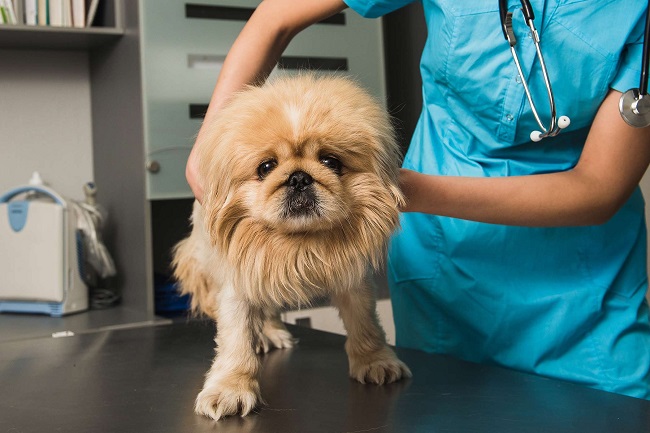As a responsible pet owner, you’re probably aware that changes in your dog’s feces can indicate changes in health. But, what does it mean when your dog’s poop is green? Should you be concerned, or is this a natural occurrence?
This comprehensive guide seeks to answer these questions and more, as we delve into the various causes and implications of green dog poop.

Dietary Factors That Can Cause Green Dog Poop
Here are some of the dietary factors that can cause green poop:
Read Also:
1. Consumption of a Large Amount of Green-Tinted Foods
Dogs are known to eat anything and everything. If your dog has had access to a significant amount of green-tinted food, such as grass or green vegetables, their poop might reflect this. This is usually nothing to worry about and should return to normal once their diet is adjusted.
2. Eating Non-Food Items
A green color might also indicate that your dog has been eating non-food items, such as toys or crayons, that have a green dye. If this is the case, monitor your dog closely for any signs of intestinal blockage, such as vomiting, loss of appetite, or difficulty defecating.
Health-Related Causes of Green Dog Poop
Here are some of the health-related issues that can cause green poop:
1. Parasitic Infections
Certain parasitic infections, like giardia, can cause your dog’s feces to turn green. If you notice other symptoms such as diarrhea, vomiting, or your dog seems unusually lethargic, it’s worth consulting your vet.
2. Intestinal Disorders
Certain digestive or intestinal disorders can also cause your dog’s stool to turn green. These include conditions such as colitis, inflammatory bowel disease, and certain types of cancer.
3. Bile Pigments
Bile is naturally green, and sometimes if food passes too quickly through the intestines, bile doesn’t have time to break down completely, and this can give the stool a green color. This could indicate that your dog is suffering from a condition that causes rapid transit of food through the intestines.
When to Consult a Vet
While the occasional green stool might not be a cause for concern, if you notice a persistent change in the color of your dog’s poop, it’s a good idea to consult your vet.
Particularly if this change is accompanied by other symptoms, such as diarrhea, vomiting, loss of appetite, or if your dog appears to be in pain.
Other Causes of Green Dog Poop
Here are some of the other causes of green poop in dog:
Exposure to Rodenticides
Rodenticides, or rat poisons, often contain green dye. If your dog’s poop is green and you suspect they might have had access to rodenticides, seek veterinary help immediately. Rodenticide poisoning is a life-threatening emergency that requires immediate veterinary intervention.
Gallbladder Issues
While less common, gallbladder issues might cause green dog poop. The gallbladder is responsible for storing bile, a green substance that aids digestion. If the gallbladder is inflamed or blocked, excessive bile can end up in the stool, turning it green.
Diet Changes and Food Coloring
A sudden change in your dog’s diet or consuming foods with artificial coloring might result in a temporary color change in your dog’s stool. In these cases, the change should only last for a day or two after the dietary change.
Tips for Preventing Green Dog Poop
In some cases, green dog poop can be prevented. Follow these general tips to ensure your dog’s digestive health:
Provide a Balanced Diet: A balanced diet is key to your dog’s overall health. High-quality commercial dog foods usually provide all the nutrients your dog needs.
Regular Exercise: Regular exercise aids in digestion and can prevent rapid transit of food through the intestines.
Avoid Sudden Dietary Changes: If you must change your dog’s diet, do it gradually over a few days to a week.
Prevent Access to Non-Food Items: Dogs are curious animals and might consume non-food items if given the chance. Prevent access to such items to avoid digestive issues.
Regular Vet Check-ups: Regular vet check-ups can help detect potential health issues before they become serious problems.
Read Also:
Conclusion
Your dog’s poop can tell you a lot about their health, and while green feces can be a cause for concern, it can also be perfectly normal, depending on the circumstances. If you’re unsure, the best course of action is always to consult a vet.
They can perform tests to determine if your dog is suffering from a health issue that requires treatment. Remember, as a dog owner, you know your pet best.
Even minor changes can indicate something is off, so always trust your gut instinct when it comes to your pet’s health. By understanding what can cause green poop, you’re better equipped to monitor and ensure the well-being of your furry friend.
























